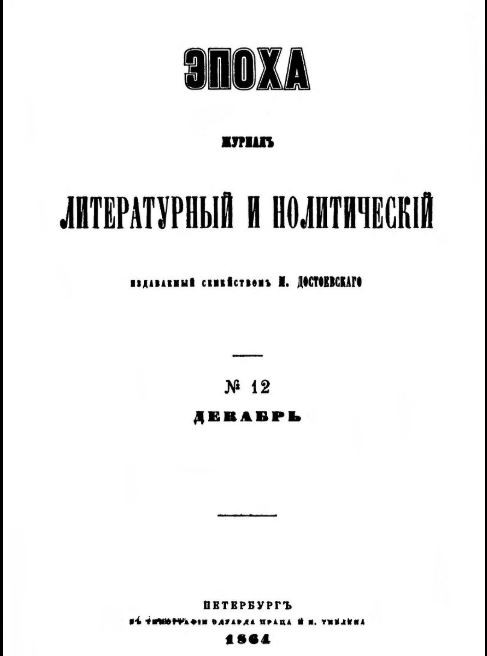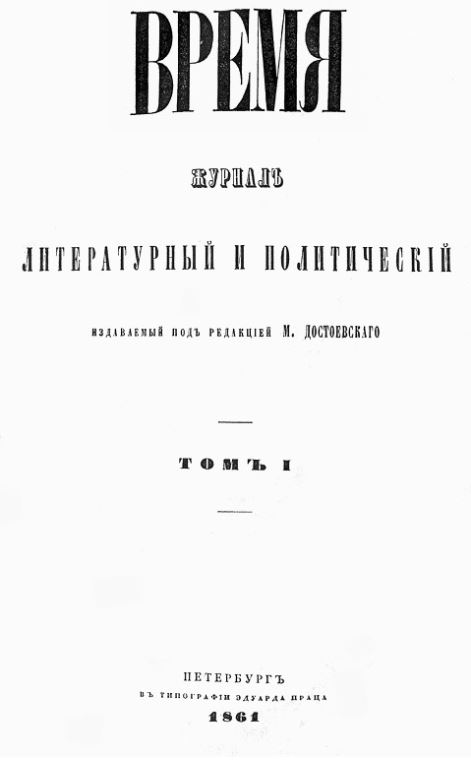In 1864/65, Dostoevsky and his brother, Mikhail, published a magazine titled Epocha (Epoch) in which Notes from Underground first appeared:
Epocha replaced their suppressed earlier magazine Vremya (Time), in which House of the Dead and The Humiliated and Injured were first published:
Dostoevsky knew that the topic of time and times was the great task confronting future thought — as it always had been the great task confronting past thought. Indeed, it is the great task confronting thought of any time that is genuinely contemporary.
The Russian word vremya (time) seems to belong to the Indo-Euopean *wer (2) complex which includes words such English vertigo, convert, versus, etc, German werden (become), Russian vreteno (spindle), Old English wyrd (fate, destiny). In the sense of this complex, time moves as a gyre with a complex threefold movement: around and around in a whirl, but ‘at the same time’ also up and down vertically and along a serial path horizontally. Modernity may be the time in which times are simplified to the third of these alone. This would be our epoch.
The Greek fates, the Moirai (Μοῖραι), were collectively termed the Klothes (Κλῶθες, spinners) after the first of them, Klotho (Κλωθώ, the spinner), who spins the thread of life (το νήμα της ζωής) onto her spindle (κλωστήρ). The second, Lachesis (Λάχεσις, the alotter) measures out the thread of life to every individual person and thing. The third, Atropos (Ἄτροπος, the inexorable one) cuts the thread of life with her terrible shears (ψαλίδια) when its appointed length has been reached.
The consideration of time is inevitably a consideration of the working of the fates — the determination of the epoch (ἐποχή) of every individual and thing which comes to be. As the Wiktionary definition has it, the epoch is “a check, cessation, stop, pause, epoch of a star, i.e., the point at which it seems to halt after reaching the highest, and generally the place of a star; hence, a historical epoch”.
McLuhan’s ever-repeated adversion to, or into, the vortex of the maelstrom may be seen as an incessant descent into the turbulences of time. Dostoevsky, too, descended into the rings of the vortex1 — in fact, some of Poe’s stories were published in Russian for the first time in Vremya.
This I-E complex of vremya includes ‘worm’ and ‘vermin’, so that Calvin Watkin’s monumental How To Kill A Dragon must be consulted in considering the vast topic at stake here. As Watkins shows, the topic incorporates the gigantomachia in multiple ways.

